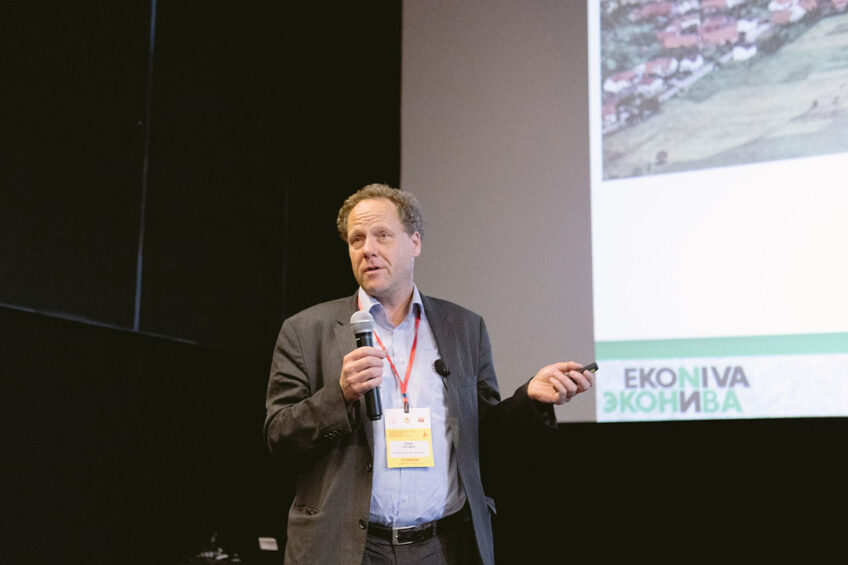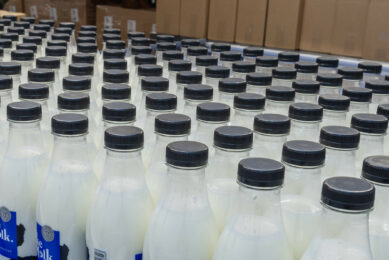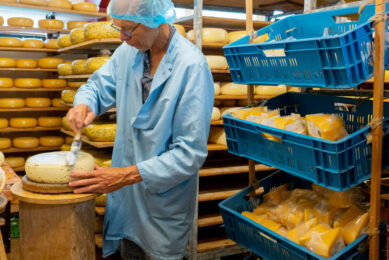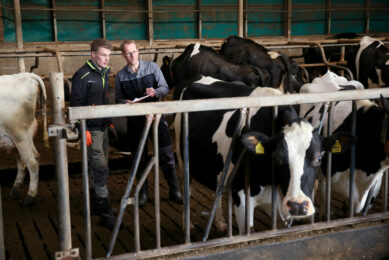Russia: EkoNiva aims to become world’s biggest milk producer

The Covid-19 pandemic has not slowed down the expansion plans of Russian agricultural holding EkoNiva. The company continues to build new milk farms and dairy plants all over the country. It aims become the world’s largest milk producer by the end of 2020.
The Covid-19-induced economy crisis has almost not affected EkoNiva, said Stefan Duerr, CEO of EkoNiva. “We continue our operation and to meet food demand of the [Russian] population,” said Duerr. “The consequences [of the pandemic] are substantial both for the economy and for ordinary citizens. I really hope that the measures taken by the government to stabilise the economy would help to support the purchasing power of the population.”

According to Duerr, EkoNiva continues plans of building new milk farms, processing capacities and is also placing a lot of effort on improving effectiveness and product quality.
“The company’s production costs went up slightly due to the certain safety measures introduced because of the coronavirus pandemic,” said Duerr. “This is not only about disinfection, but also other serious measures, we also use some imported raw materials, including packaging,” Duerr said, adding that the fluctuations of the exchange rate of the Russian ruble affected these costs.
All in all the production cost should lead to growth in retail prices within the range between 3% and 10%, but the actual changes of price tags would depend on the economy situation in Russia, according to Duerr. “We are realising that the purchasing power of the population, which was not high enough before the crisis, is not going to increase now,” he said.
Russian dairy export
The ongoing crisis could create some new opportunities for Russian dairy companies on the global market and EkoNiva is going to be using these opportunities.

“Not all countries have the same situation as in Russia, where most companies continue operation. This could help EkoNiva in developing its export potential,” said Duerr.”We are able to feed a large number of people. People are temporarily not able to establish business contacts because of the existing travel restrictions, but the borders will open sooner or later and I see great opportunities in developing our export, including of milk.”
“Every crisis brings not only problems, but also opportunities,” said Duerr. “Many companies have started online sales but EkoNiva was not prepared enough to do that. We had this in mind, but at some point it was put on hold. We are working with delivery, but through other companies.”
The image of Russian products in China is good, in ten years from now we would be able to sell dairy products in big quantities – I’m sure about that.
EkoNiva earlier unveiled plans to export its products to China, South-East Asia and Middle East. “I believe that with no doubt that Russian milk will be a part of the global market,” Duerr said, speaking at a press-conference in Moscow in December of 2020. “The image of Russian products in China is good, in ten years from now we would be able to sell dairy products in big quantities – I’m sure about that.”
Production capacities rapidly growing
Between the end of 2019 and 30 April 2020, EkoNiva pushed its dairy herd to 103,475 from 97,600. During the first four months of the year the company manufactured 299,000 tonnes of milk, 35% up compared to the same period of the previous year, EkoNiva said in a statement.
The production is expected to grow this year at least to 1 million tonnes, possibly to 1.3 million, compared to 800,000 tonnes in 2019. By 2025, the company plans to produce 1.6 million tonnes of milk per year.
The increase in production is also positively affecting the company’s financial performance. Ekosem-Agrar AG, the German parent company of EkoNiva Group, has reported that the company generated sales revenues of more than €400m ($433.3m) in the past fiscal year, an increase of more than 60% compared to 2018. Total output also rose to more than €560m ($606.6m), compared to €376.5m ($407.8m) in 2018.
![“We continue our operation and to meet food demand of the [Russian] population,” said Duerr. Photo: Vladislav Vorotnikov “We continue our operation and to meet food demand of the [Russian] population,” said Duerr. Photo: Vladislav Vorotnikov](/Resizes/420x315/PageFiles/89/22/2289/003/004_858_IMG_Ekonivastrugglestoboostexportsupplies.jpg)
According to Sergey Lyashko, commercial director of EkoNiva this year the company is set to invest Rub14 billion ($210m) into expansion.
EkoNiva previously announced plans to build four dairy plants in Russia until 2024, with the overall investment costs of some Rub93 billion ($1.5bn), including three cheese plants and one food plant. Three plants would be located in European Russia, including one in Moscow Oblast, and another one in Siberia. Construction has already started.
Effectiveness is the key
According to Duerr, EkoNiva is also planning investments into new milk farms in order to focus on improving effectiveness and boosting share of products with the higher added value.
The company increased the quantities of its own products on grocery shelves in Russia and aims to stick to that trend and to enter the list of the country’s biggest dairy processing companies by 2024, Duerr said.
In order to fuel its expansion the company has been considering IPO since 2018. The company has been reluctant to go on the stock exchange because of geopolitical risks and possible international sanctions against the Russian financial sector. Speaking in December of 2019, Duerr said that the conditions have improved.
Join 13,000+ subscribers
Subscribe to our newsletter to stay updated about all the need-to-know content in the dairy sector, two times a week.










